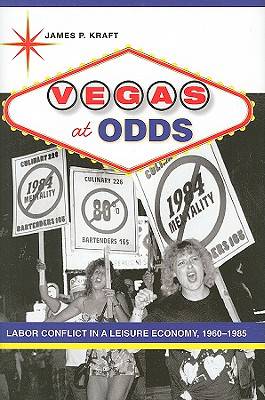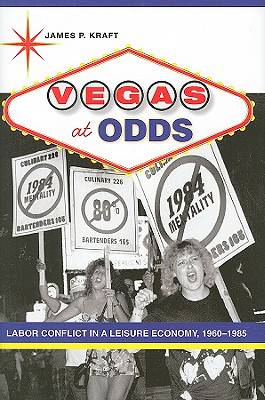
- Retrait gratuit dans votre magasin Club
- 7.000.000 titres dans notre catalogue
- Payer en toute sécurité
- Toujours un magasin près de chez vous
- Retrait gratuit dans votre magasin Club
- 7.000.000 titres dans notre catalogue
- Payer en toute sécurité
- Toujours un magasin près de chez vous
Description
The stories of the shadowy networks and wealthy people who bankrolled and sustained Las Vegas's continuous reinvention are well documented in works of scholarship, journalism, and popular culture. Yet no one has studied closely and over a long period of time the dynamics of the workforce--the casino and hotel workers and their relations with the companies they work for and occasionally strike against. James P. Kraft here explores the rise and changing fortunes of organized and unorganized labor as Las Vegas evolved from a small, somewhat seedy desert oasis into the glitzy tourist destination that it is today.
Drawing on scores of interviews, personal and published accounts, and public records, Kraft brings to life the largely behind-the-scenes battles over control of Sin City workplaces between 1960 and 1985. He examines successful and failed organizing drives, struggles over pay and equal rights, and worker grievances and arbitration to show how the resort industry's evolution affected hotel and casino workers. From changes in the political and economic climate to large-scale strikes, backroom negotiations, and individual worker-supervisor confrontations, Kraft explains how Vegas's overwhelmingly service-oriented economy works--and doesn't work--for the people and companies who cater to the city's pleasure-seeking visitors.
American historians and anyone interested in the history of labor or Las Vegas will find this account highly original, insightful, and even-handed.
Spécifications
Parties prenantes
- Auteur(s) :
- Editeur:
Contenu
- Nombre de pages :
- 304
- Langue:
- Anglais
- Collection :
Caractéristiques
- EAN:
- 9780801893575
- Date de parution :
- 01-12-09
- Format:
- Livre relié
- Format numérique:
- Ongenaaid / garenloos gebonden
- Dimensions :
- 155 mm x 229 mm
- Poids :
- 544 g







